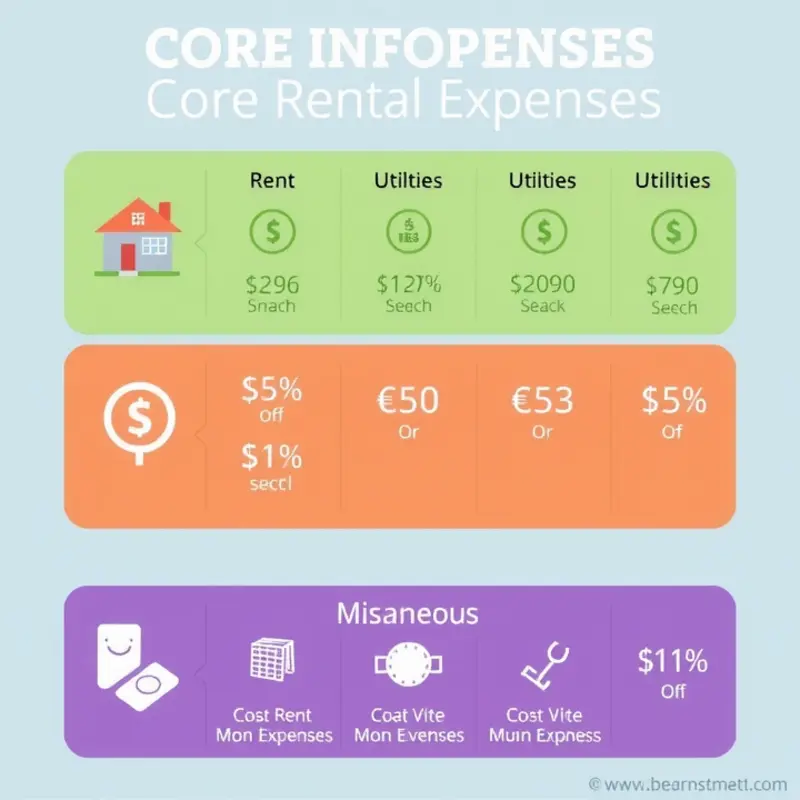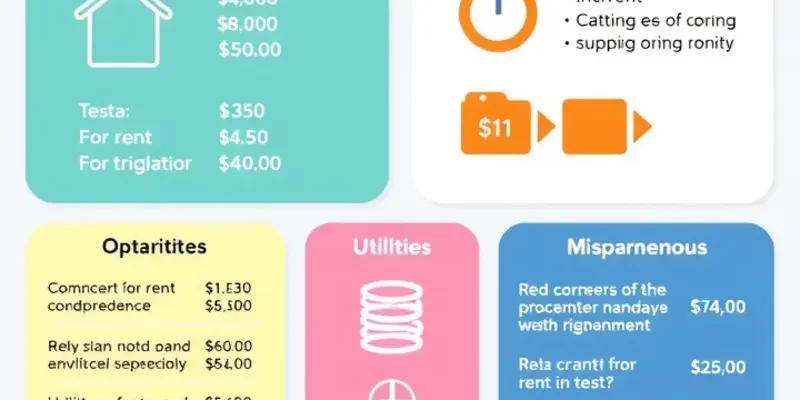The journey to finding your first rental can be both exciting and daunting. Whether you’re a young professional, a student, a couple, or a family, understanding how to budget effectively is crucial for a stress-free leasing experience. With rising rental costs and the importance of maintaining financial stability, this guide offers practical insights into creating a budget tailored to your lifestyle and needs. By breaking down essential expenses, potential hidden costs, and strategic savings tips, you can gain clarity on how to allocate your income wisely and avoid common pitfalls. Embracing this budgeting process will not only help you secure your ideal rental but also ensure that you thrive in your new living situation without undue financial stress.
Understanding Your Core Expenses

When beginning your journey as a renter, understanding your core expenses is a crucial step toward financial stability. Identifying these fundamental costs will enable you to create a budget that balances your essential needs with your lifestyle preferences.
The first and most significant expense you will face is rent. Rent costs can vary greatly depending on location, size, and amenities. It’s essential to set a realistic budget for rent. A common guideline is to allocate no more than 30% of your income to rent payments. Factor in the potential for rent increases. Research the local market trends to anticipate changes in rent over time.
Next, utilities such as electricity, water, gas, and internet add to your monthly expenses. These costs fluctuate based on usage, size of the apartment, and regional rates. To effectively manage these expenses, consider ways to reduce consumption. For instance, cutting back on energy usage is a practical approach reducing utility bills in rentals. Remember that some utility costs may be included in your rent, so review your lease agreement carefully.
Deposits are another important consideration. Landlords typically require security deposits to cover potential damage to the property. This is often equivalent to one or two months’ rent. Additionally, you might encounter deposits for utilities or a pet, should you have one. These upfront costs can add up quickly, so plan accordingly.
Distinguishing between necessary and discretionary spending is vital. Necessary expenses cover your basic living requirements, while discretionary spending includes non-essential items that enhance your lifestyle. Entertainment, dining out, and shopping should be categorized under discretionary spending. By understanding this distinction, you can allocate resources effectively and prevent overspending.
Beyond the obvious expenses, renters often face unexpected costs. Moving fees, storage costs, and renters insurance might not be immediately apparent. If you’re relocating to a new area, familiarize yourself with potential hidden costs, such as parking permits or HOA fees. Adjust your budget to account for these eventualities to avoid unpleasant surprises.
By gaining a comprehensive understanding of your core expenses, you’ll be well-equipped to manage your finances efficiently. This knowledge empowers you to establish a budget that not only secures your home but also supports your lifestyle aspirations. As you navigate the complexities of renting, remember that meticulous planning and informed decisions are your best assets.
Strategizing for Success: Budgeting Tips and Tricks

Once you’ve understood your core expenses, it’s time to strategize for success. First, consider applying the 50/30/20 rule to your finances. Allocate 50% of your income toward necessities like rent and utilities, 30% for discretionary spending, and 20% toward savings and debt repayment. This formula provides a balanced approach that can adapt to individual financial situations.
Budgeting apps can also be invaluable tools in managing your rental budget. Many offer features like expense tracking, bill reminders, and goal-setting, which help in enforcing financial discipline. Look for apps that offer custom categories, allowing you to tailor your budget to line up with your lifestyle.
It’s crucial to focus on building an emergency fund, particularly for unexpected costs related to your rental. Aim to save three to six months’ worth of living expenses. Even a modest start, such as setting aside a small amount each month, can gradually grow into a more substantial cushion.
Anticipating future costs is another critical element of your financial plan. Moving expenses, such as truck rental or hiring movers, can add up. You might also need to purchase furniture or other essentials for your new home. Plan for these by setting aside a stipulated amount each month, transforming large expenses into manageable targets.
To maintain a healthy rental budget, periodically review and adjust your financial strategy. This involves reassessing fixed and variable expenses, canceling unneeded subscriptions, and finding ways to lower living costs. For instance, saving on utilities can make a significant difference. You can reduce utility bills in rentals by adopting energy-efficient practices.
Emphasize mindful spending to enjoy your home within your financial limits. Consider dining in more often instead of pricey restaurant outings or exploring free local activities to stretch your discretionary budget. By employing these strategic steps, you can savor your rental experience with less financial stress and more peace of mind.
Final words
Establishing a thoughtful budget as a first-time renter is not only about making ends meet; it’s about creating a comfortable living environment without financial strain. By understanding your core expenses and employing strategic budgeting techniques, you gain the confidence needed to navigate your new rental. Remember, a well-planned budget enhances your overall living experience and provides you with the freedom to make the most of your time in your new home. Taking the time to budget wisely now will pay off in the long run, leading to greater financial stability and peace of mind as you settle into this exciting new chapter of your life.









